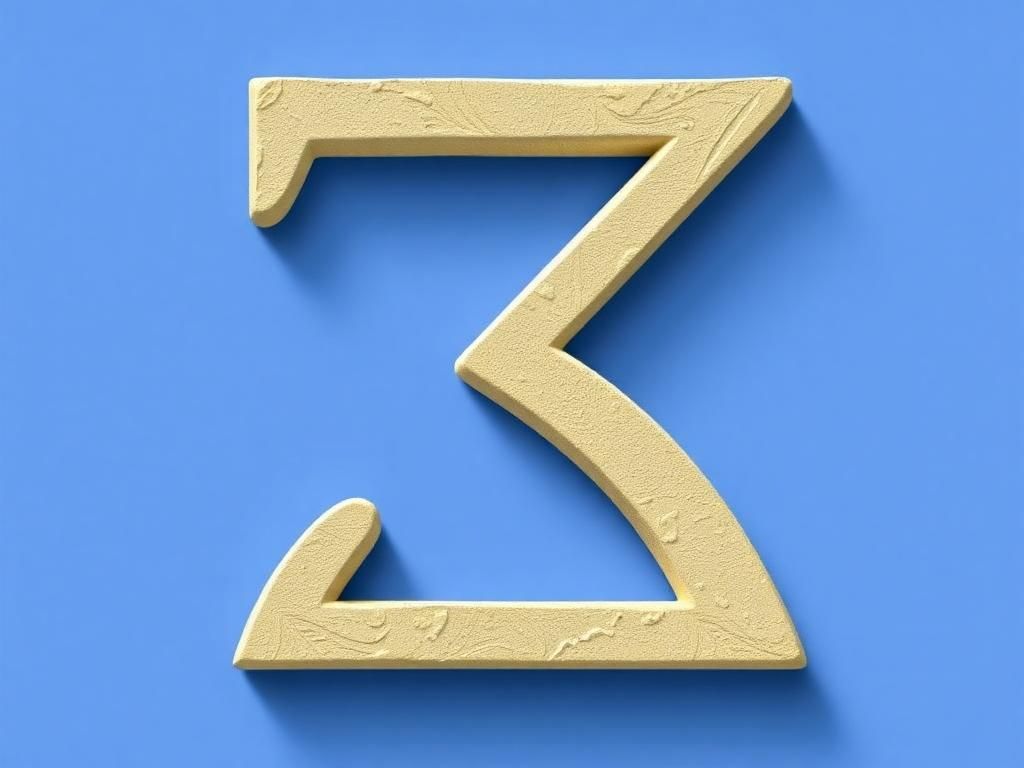The Greek alphabet, rich in history and integral to many fields, has shaped languages, mathematics, and culture across centuries. Among its 24 letters, each plays a vital role in linguistics, but the focus of this article is on the seventh letter of the Greek alphabet, Zeta (Ζ, ζ). Exploring Zeta provides insight into its phonetic, historical, mathematical, and cultural significance.
Overview of the Greek Alphabet
History and Development
The roots of the Greek alphabet can be traced back to around the 8th century BC. It originated from the Phoenician script, adapting its symbols to represent Greek sounds. The adaptation not only provided a writing system for the Greek language but also influenced various other alphabets. The Greek alphabet consists of 24 letters, arranged in a specific order, starting with Alpha (Α) and concluding with Omega (Ω).
The Structure of the Greek Alphabet
Understanding the Greek alphabet requires familiarity with its structure. The letters can be categorized into uppercase and lowercase forms, with Zeta represented as Ζ (uppercase) and ζ (lowercase). Furthermore, Greek letters are differentiated into consonants and vowels. Zeta, being a consonant, signifies particular phonetic sounds, contributing to the alphabet’s linguistic diversity.
The Seventh Letter: Zeta (Ζ, ζ)
Phonetic Characteristics
Zeta is pronounced as /z/ in modern Greek, closely resembling the English “z” sound. In ancient Greek, however, its pronunciation varied based on dialects, sometimes representing a /dz/ sound. This evolution showcases how the seventh letter of the Greek alphabet adapted linguistically over time.
Historical Significance
Zeta holds an esteemed position in Ancient Greek literature and culture. Its presence in historical texts, such as the works of Homer and Plato, underscores its significance in conveying ideas and themes central to Greek thought. The letter’s frequent occurrence in inscriptions and manuscripts from antiquity further highlights its cultural importance.
Mathematical and Scientific Usage
Symbolism in Mathematics
In mathematics, the seventh letter of the Greek alphabet serves as a symbol and variable in various contexts. It is commonly employed in calculus and geometry, representing constants and coefficients in equations. For instance, Zeta is often used in the Riemann Zeta function, vital for understanding prime numbers and complex analysis.

Applications in Physics and Engineering
The relevance of Zeta extends to physics and engineering. The Zeta function plays a crucial role in multiple areas, including quantum physics and statistical mechanics. Additionally, Zeta is utilized in models describing dynamic systems, showcasing its multifaceted applications in scientific domains.
Cultural Significance
Zeta in Greek Mythology
Zeta is not merely a letter; it also resonates within Greek mythology. It is associated with various gods and heroes in mythology, symbolizing strength and resilience. Ancient texts often reference Zeta to invoke these traits, enriching the character and narrative significance within mythological tales.
Modern Cultural References
In contemporary culture, the seventh letter of the Greek alphabet appears in various media, literature, and organizations. From films to literature, Zeta’s representation extends to academic societies and groups seeking to highlight their Greek heritage, further emphasizing its lasting relevancy.
Variations and Related Letters
Comparison with Similar Letters
To appreciate Zeta, one must consider its relationship with similar letters in the Greek alphabet. For instance, Zeta differs notably from Eta (Η, η), which represents a long “e” sound. Understanding these distinctions enhances comprehension of Greek phonetics and its various dialects, enriching the appreciation of the seventh letter of the Greek alphabet.
Letters Derived from Zeta
The influence of Zeta extends beyond Greek. It has shaped other alphabets, including the Latin and Cyrillic scripts. This influence reflects Zeta’s significance not just within Greek language but across linguistics, contributing to a broader understanding of the genealogy of writing systems.
Fun Facts and Trivia

– **Unique Pronunciation**: One of the most common misconceptions about Zeta is its pronunciation in modern contexts. Many people assume it retains the ancient /dz/ sound, which is now notably absent.
– **Easy Mnemonics**: To remember Zeta, think of a zigzag pattern, mimicking the shape of Zeta and its associated sound, like the buzz of a bee.
– **Cultural Emblems**: Zeta appears in many modern brands and organizations, signifying excellence.
Conclusion
The seventh letter of the Greek alphabet, Zeta, embodies a rich historical, cultural, mathematical, and linguistic significance. From its origins rooted in ancient cultures to its applications in modern science and media, Zeta serves as a remarkable testament to the Greek alphabet’s enduring legacy.
References and Further Reading
– For comprehensive insights into the Greek alphabet’s history, visit the Greek Alphabet Overview on [Britannica](https://www.britannica.com/topic/Greek-alphabet).
– For academic texts regarding Greek letters, consider “The Greek Alphabet: A Complete Guide” by Samuel E. Smith.
– For additional exploration of Greek mythology and its characters associated with Zeta, check out [Theoi Greek Mythology](https://www.theoi.com).
| Feature | Zeta (Ζ, ζ) | Eta (Η, η) |
|---|---|---|
| Sound in Modern Greek | /z/ sound | /i/ sound |
| Historical Literature | Frequent in Ancient Texts | Less Common |
| Mathematical Use | Zeta Function | Not Typically Used |
| Influence on Other Alphabets | Direct Influence on Latin and Cyrillic | Indirect Influence |
Frequently Asked Questions
1. What is the phonetic sound of Zeta?
In modern Greek, Zeta is pronounced as a /z/ sound, similar to the English “z.”
2. Where does the Greek alphabet originate?
The Greek alphabet originated from the Phoenician script around the 8th century BC.
3. How is Zeta used in mathematics?
Zeta is often used as a variable in mathematical equations and is crucial in the Riemann Zeta function.
4. What is the difference between Zeta and Eta?
Zeta represents the /z/ sound, while Eta represents a long /e/ sound in Greek.
5. Are there cultural references to Zeta?
Yes, Zeta is represented in modern media, mythology, and various organizations honoring Greek heritage.
6. Can Zeta be found in other alphabets?
Yes, Zeta has influenced the development of the Latin and Cyrillic alphabets, contributing to their structure.
7. Is there a mnemonic for remembering Zeta?
An effective mnemonic is to visualize a zigzag pattern, associated with the letter’s shape and sound.
8. How prevalent is Zeta in ancient texts?
Zeta appears frequently in ancient Greek literature and historical documents, highlighting its significance.
9. What role does Zeta play in Greek mythology?
Zeta often symbolizes strength and resilience, connected to various gods and heroes within myths.
10. What is a common misconception about Zeta?
Many people mistakenly believe Zeta retains an ancient /dz/ pronunciation, which is not used in modern Greek.
